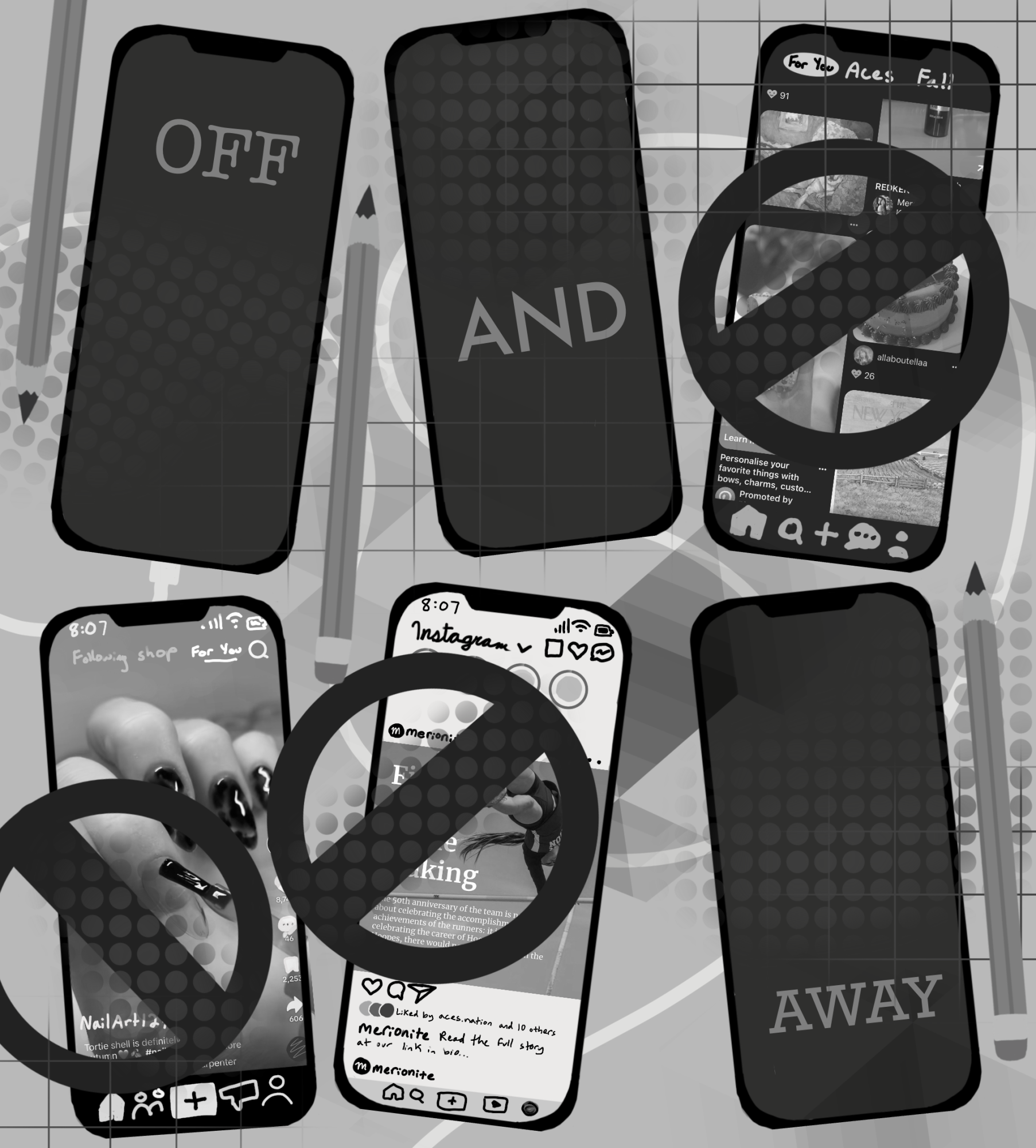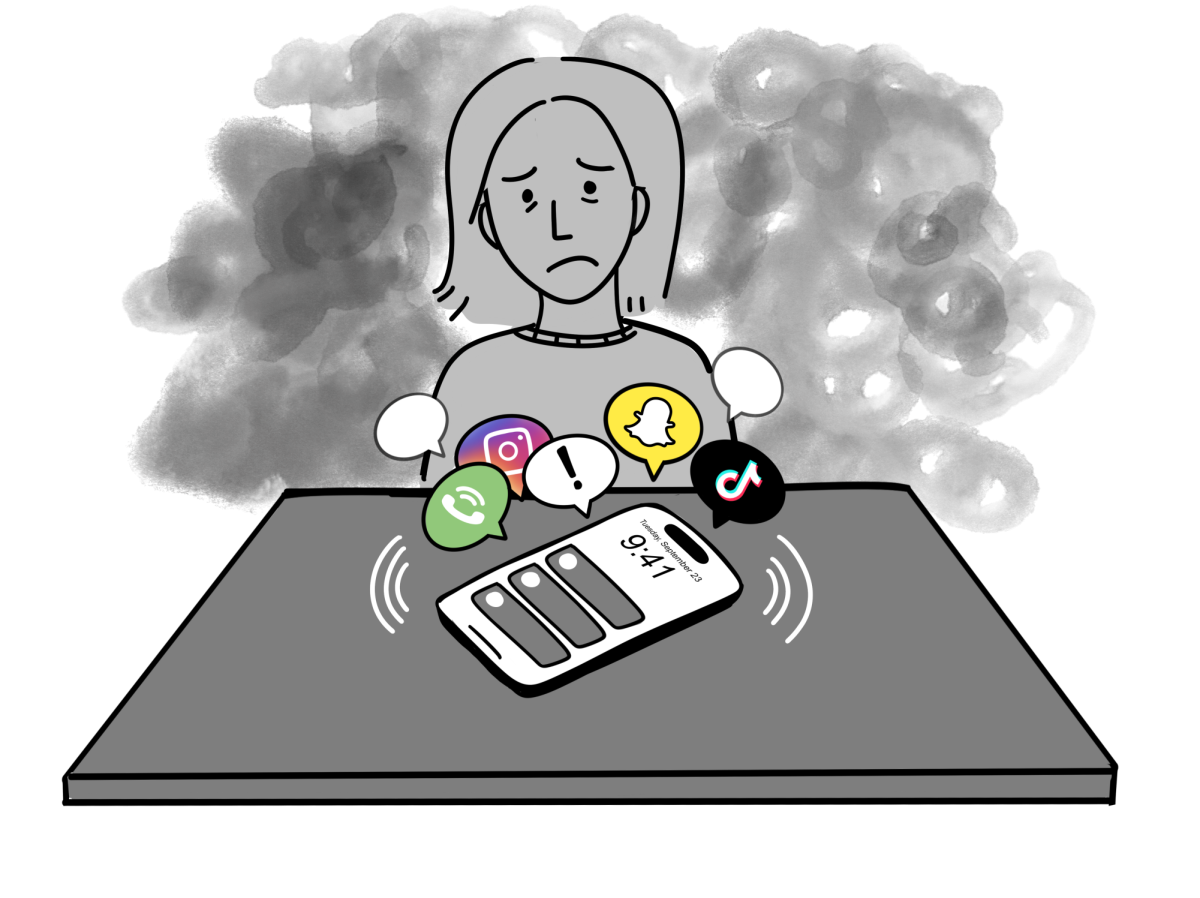
When the “Off and Away” policy was first introduced in the fall of 2023, I gave it a month. Removing an accessory glued to the hand of every teenager with their entire life stored in the circuitry seemed like a step LM wouldn’t be willing to take. In the first few months of the school year, teachers, to their credit, did try to enforce the policy. They insisted on phones in the bags, no AirPods in class—the usual spiel. But my prediction was right, of course, and by spring, students had almost entirely reverted to their previous behaviors. The Merionite even published an article about the ineffectiveness and naivety of “Off and Away.” It was clear that although the administration had given it a good college try, LM’s catchy cell phone plan had failed. So why, after a clear failure, have they decided to try again?
LM’s reintroduced “Off and Away” reiterates the same ideology as last year. Students are still expected to silence phones and place them in a remote location. One noticeable change in the classroom environment is the rise of the dreaded cell phone pockets, since students can’t even be trusted to possess their phone and hence must store it in the high school version of a cubby during the period. Hearing the broken record of “Off and Away” with the knowledge that it failed last year does not allow students to feel less distracted or blessed to be free of their phones. On the contrary, within the first two weeks of the school year, it is obvious that the policy is doomed to repeat history. As soon as class ends, students retrieve their phones to walk with them in-hand through the hallways. They use them between classes, during lunch and free periods, and even in classes when the teacher seems not to be enforcing the policy as heavily. LM culture has experienced virtually no change from last school year to the present other than general annoyance at the phone pockets.
Obviously, a school phone policy is not the be-all and end-all cure for a global issue. Our generation’s attachment and dependency on our phones is a problem that is becoming harder to ignore. However, no matter what LM does, the presence of phones in our lives is constant and unchanging. Schools across the country are struggling to cope with this reality, some going as far as outright banning or locking up phones during school hours. However, this is a naive and escapist approach to a problem that we need to work with, not against. LM has done a great job with its policy on another prevalent tech issue, the use of AI and ChatGPT. Instead of outright banning its use, students are taught the right ways to use the technology and when it’s appropriate. They are still taught to think critically and creatively but are not sheltered from new inventions that are here to stay. If LM can figure out how to apply this philosophy to their phone issue, it would have a much deeper impact on the student body.
At the end of the day, LM’s beloved “Off and Away” policy is headed in a similar direction to last year. There has been no drastic change in student culture or classroom behavior; the hope that student minds will be free of the phone prison is not coming true anytime soon. To say that the classroom has benefitted from the policy would be incorrect, as the only classes firmly without the use of phones are those that confiscate them. The distracting nature of phones and the constant presence of technology are two big problems that LM and schools worldwide need to address, but “Off and Away” is not the solution.





